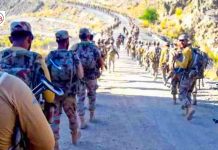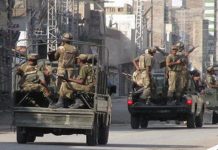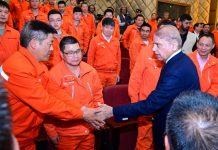Syed Asghar Shah, the head of the Sindhudesh Revolutionary Army (SRA), shared insights on the importance collective efforts and alliances in national freedom movements in a recent interview published in “Muzahimat” (Resistance). The magazine, issued by the SRA, encompasses a variety of articles, including operational reports of the organization.
In the interview, Shah detailed the SRA’s strategic alliance with “BRAS,” a coalition involving multiple Baloch “pro-independence” organizations such as the BLA, BLF, BRA, and BRG, formalized on July 26, 2020. He emphasized that such alliances are integral for sustaining wars of resistance and ultimately prevailing against a “common enemy”. He believes the union is a source of strength and motivation for their nations and has sent a positive message internationally.
Syed Asghar Shah highlighted the historical, political, cultural, and civil connections between Sindhis and Balochs due to their geographical proximity and discussed the shared goal of national freedom. Shah believes that achieving this objective will have significant implications regionally and internationally.
He also delved into the geographical and strategic significance of Sindh and Balochistan and the historical exploitation of these regions by various forces. He mentioned the ambition of certain entities to control the geography, coastal belt, islands, energy resources, and agriculture of these regions, particularly referencing the role Punjab is currently playing as well as the contentious China-Pakistan Economic Corridor (CPEC).
Expressing concerns over CPEC’s long-term territorial and economic impacts, Shah emphasized the commitment of the SRA and BRAS to closely monitor the developments around this project. He emphasized that their strategy hinges on confronting such challenges head-on, believing that only a strong stance will deter imperialist ambitions, and guard their territorial and economic interests.
He commented on the ongoing new Cold War between America and China, affecting nations worldwide. He noted the formation of various international alliances like QUAD and AUKUS by America to block China’s path and China’s counteractive efforts in forming alliances with Russia, North Korea, and efforts to unite Iran and Saudi Arabia. This rapidly shifting landscape, he suggests, is pushing the world back into an era of block politics.
With Southern Asia and the South China Sea transforming into potential battlefields, he highlighted that America’s attention is predominantly focused on this region, post the engagements with Russia and the Middle East. He observed the changing political dynamics and alliances in Asia, where powerful countries like China, India, and Japan exist. He sees the entire Asian region, especially Southern Asia, becoming a significant global focal point.
Mr. Shah also scrutinized Pakistan’s internal and external policies, emphasizing the political, economic, and judicial crises shaking the foundations of the country. He criticized Pakistan’s interventions in neighboring countries and its alleged oppressive tactics in Sindh and Balochistan.






























